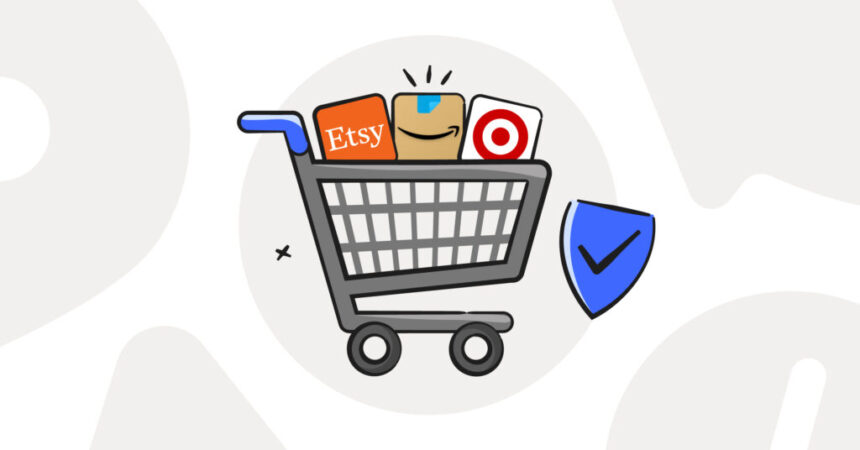Online shopping has leveraged the shopping experience by offering convenience and a vast selection at our fingertips. There are, however, risks involved with online shopping, which pertain to fraud, identity theft, and data breaches. Here are some essential tips on how to shop safely online and keep sensitive personal and financial information safe.
Shield Your Connection
Whenever you shop online, ensure that you are on a safe internet network. Do not use public Wi-Fi because it is usually unsecured and thus can be easily hacked by cybercriminals. Alternatively, shop from your home network or use a Virtual Private Network to encode your data. A VPN makes a secure tunnel between the device and the internet; through this, it becomes hard for any cybercriminal to intercept your information. Surfshark VPN is one of the most affordable and secure service provider. For more Surfshark information, you can check its website.
Check the Security of the Website
Before making an entry of personal or financial information, make sure the website is secure. The padlock icon should be located on the left side of the address bar, and the website URL needs to include “https” at the beginning and not just “http.” That extra “s” stands for secure, meaning the site uses SSL, or Secure Sockets Layer, which encrypts your data.
Research the Seller.
If this is an unknown website, take a minute or so to research that seller. Check for reviews at places like Trustpilot, Yelp, and Google to determine the retailer’s reputation. Look for a physical location and contact info, and read through their return policy. Be wary of websites with typos throughout or no other contact information.
Use strong, unique passwords
Make long, strong, unique passwords for your online shopping accounts. Always avoid using the same password on more than one site. If one of the sites is compromised, all of your accounts can be endangered. Consider using a password manager to generate and store long, complicated passwords securely.
Use Secure Payment Methods
Credit cards are much safer than debit cards, as they include measures of fraud protection in case something goes wrong with your transaction. One more advanced alternative would be digital wallets, such as PayPal or Google Wallet. They create an additional layer of safety by not directly sharing your actual credit card details with the retailer. Be sure to avoid direct bank transfers or sending cash; this approach allows less or no possibility of returning money in case of fraud.
Be Wary of Too-Good-To-Be-True Deals
If it sounds too good to be true, it probably is. Scammers will entice victims with meager prices on in-demand products. Always compare the prices across several different sites and show some healthy skepticism toward those deals far below the average market price. Check the URL of a website for misspellings or odd domain extensions that could indicate a site is bad news.
Protect Your Personal Information
Only provide what is necessary to complete your transaction. Be suspicious of sites requesting fight personalize — always resistant, particularly to providing your Social Security number or date of birth. Most merchants require only payment information, shipping address, and contact information. Never reply to an e-mail or phone call requesting passwords or other sensitive info unless you have contacted that supplier directly.
Watch Your Accounts
Constantly verify the statements of your banks and credit cards for any unauthorized transactions. Set up alerts with your bank to notify you if some suspicious activity is detected. If you encounter some discrepancy, inform it immediately to your financial institution. One can quickly recognize fraud if there is a close watch over the accounts and take remedial action.
Install antivirus and anti-malware software.
Keep updated antivirus and anti-malware software installed on your devices at all times. Such tools could be utilized for spotting and blocking malware attacks that expose personal information. Also, keep your operating system and web browser up to date for improved security related to vulnerabilities.
Log Out After Shopping
Always log out from your accounts after making an online purchase, mainly if you use a public or shared computer. Doing this might just spare you from unauthorized access to your accounts by other people. Do not save your credit card information on retailer websites, as this makes you vulnerable, significantly if they get compromised.
Use a VPN for Added Security
A perfect tool that helps in enhancing your security while browsing the internet is a VPN. That encrypts your Internet connection, making it hard for those hackers to intercept your data. This can be very useful, especially in shopping on public Wi-Fi, which gives extra protection. This helps in privacy maintenance and the stopping of price discrimination by geolocation through hiding your IP address.






